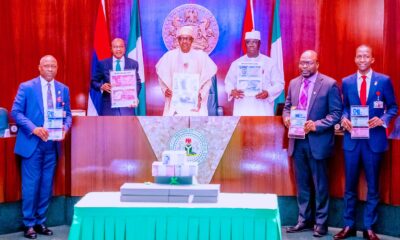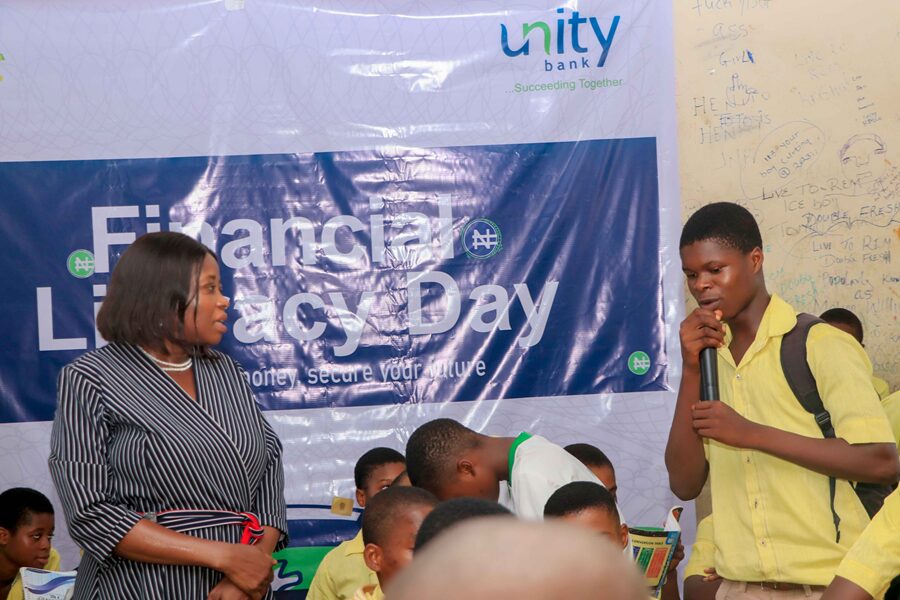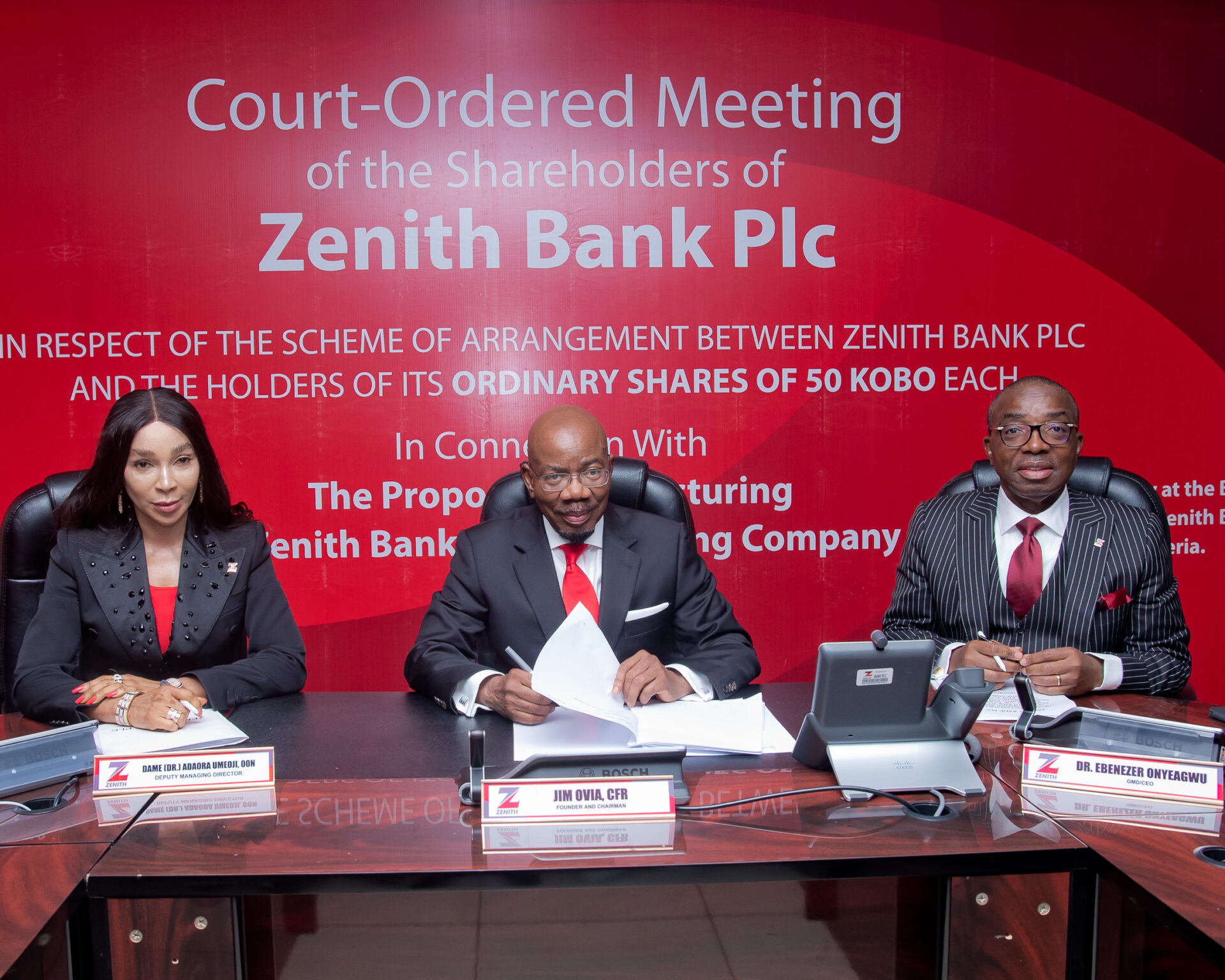Shareholders of Zenith Bank Plc unanimously approved the restructuring of the Bank to a holding company during a court-ordered Extraordinary General Meeting (EGM) held virtually from Zenith Heights, Zenith Bank Plc, Victoria Island, Lagos, on Friday, April 26, 2024.
In accordance with the Scheme of Arrangement dated March 28 2024, pursuant to Section 715 of the Companies and Allied Matters Act (CAMA), 2020 between the Bank and the holders of the fully paid ordinary shares of 50 Kobo each in the Bank, the shareholders voted to transfer 31,396,493,787 ordinary shares of 50 Kobo each held in the issued and paid-up share capital of Zenith Bank Plc to Zenith Bank Holding Company Plc (the HoldCo) in exchange for the allotment of 31,396,493,787 ordinary shares of 50 Kobo each in the share capital of the HoldCo in the same proportion to their shareholding in the Bank.
Similarly, the shareholders approved that each Existing GDR Holder receive, as consideration for each existing GDR held, one new HoldCo GDR.
The shareholders also approved that all of the shares held by the nominees of the Bank in Zenpay Limited, a direct subsidiary of the HoldCo, together with all rights and liabilities attached to such shares, be transferred to the HoldCo.
The Board of Directors were also authorised to delist the shares of the Bank and the Existing GDRs from the official list of the Nigerian Exchange and the London Stock Exchange respectively as well as re-register the Bank as a private limited company under CAMA Act 2020.
In his remarks during the EGM, the Founder and Chairman of Zenith Bank Plc, Jim Ovia, CFR, thanked the shareholders for their unwavering commitment, which has been instrumental in the Bank’s outstanding performance over the years.
He expressed his delight at witnessing the transition of the Bank to a holding company, which is anticipated to position it advantageously for exploring emerging opportunities in the Fintech space while bolstering its digital and retail banking initiatives.
Also speaking during the EGM, Dr. Ebenezer Onyeagwu, the Group Managing Director/Chief Executive, lauded the Founder and Chairman, Jim Ovia, CFR, for his pivotal role in creating an institution that has consistently been a trailblazer in the nation’s financial services industry.
Dr. Onyeagwu expressed his optimism about the Bank’s growth trajectory in the coming years as it transitions into a holding company structure.
According to him, “The HoldCo structure presents an opportunity for us to unlock value for shareholders in terms of opportunity in other sectors beyond banking. The first part is Fintech, where we have already received the approval and the license from the Central Bank of Nigeria (CBN), which we are launching soon.
“It is going to be focusing on an area that we know has not been touched on by anyone. So it is more like us finding an open wide space where we can begin to operate, and with a HoldCo, what that means is that we have an opportunity to diversify our investment.
“We can begin to look at other business verticals that were restrained by the kind of authorisation we have. So, it presents a big opportunity for us to have a wider lens and scope in terms of what we can do. It will also position us to think of opportunities beyond Africa. We will be looking at key business verticals that have the potential to enable us to create value for shareholders.”
On the recapitalisation plan of the Bank, Dr. Onyeagwu stated that the Bank is on course to receive the needed shareholder’s approval in the forthcoming Annual General Meeting (AGM) slated for May 8, 2024, which will kickstart its capital raising effort in line with the CBN directive.
He expressed confidence in the Bank’s ability to raise the stipulated capital, stating that amongst its peers in the industry, Zenith was expected to raise the least amount due to its already robust capital base.


 Forex4 weeks ago
Forex4 weeks ago
 Naira3 weeks ago
Naira3 weeks ago
 Billionaire Watch3 weeks ago
Billionaire Watch3 weeks ago




 Naira3 weeks ago
Naira3 weeks ago








 Naira3 weeks ago
Naira3 weeks ago


 Naira2 weeks ago
Naira2 weeks ago








 Naira2 weeks ago
Naira2 weeks ago








 Naira4 weeks ago
Naira4 weeks ago























